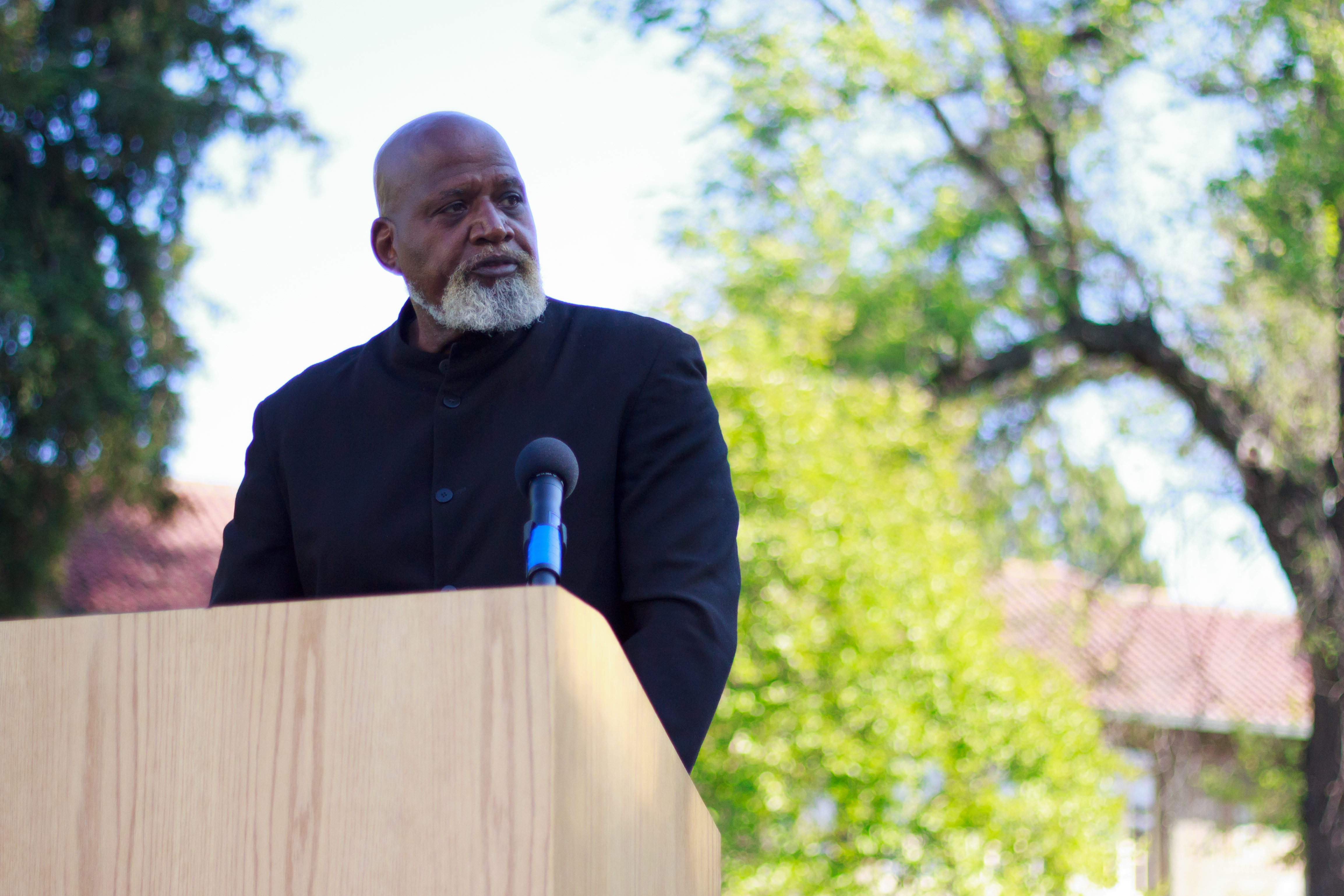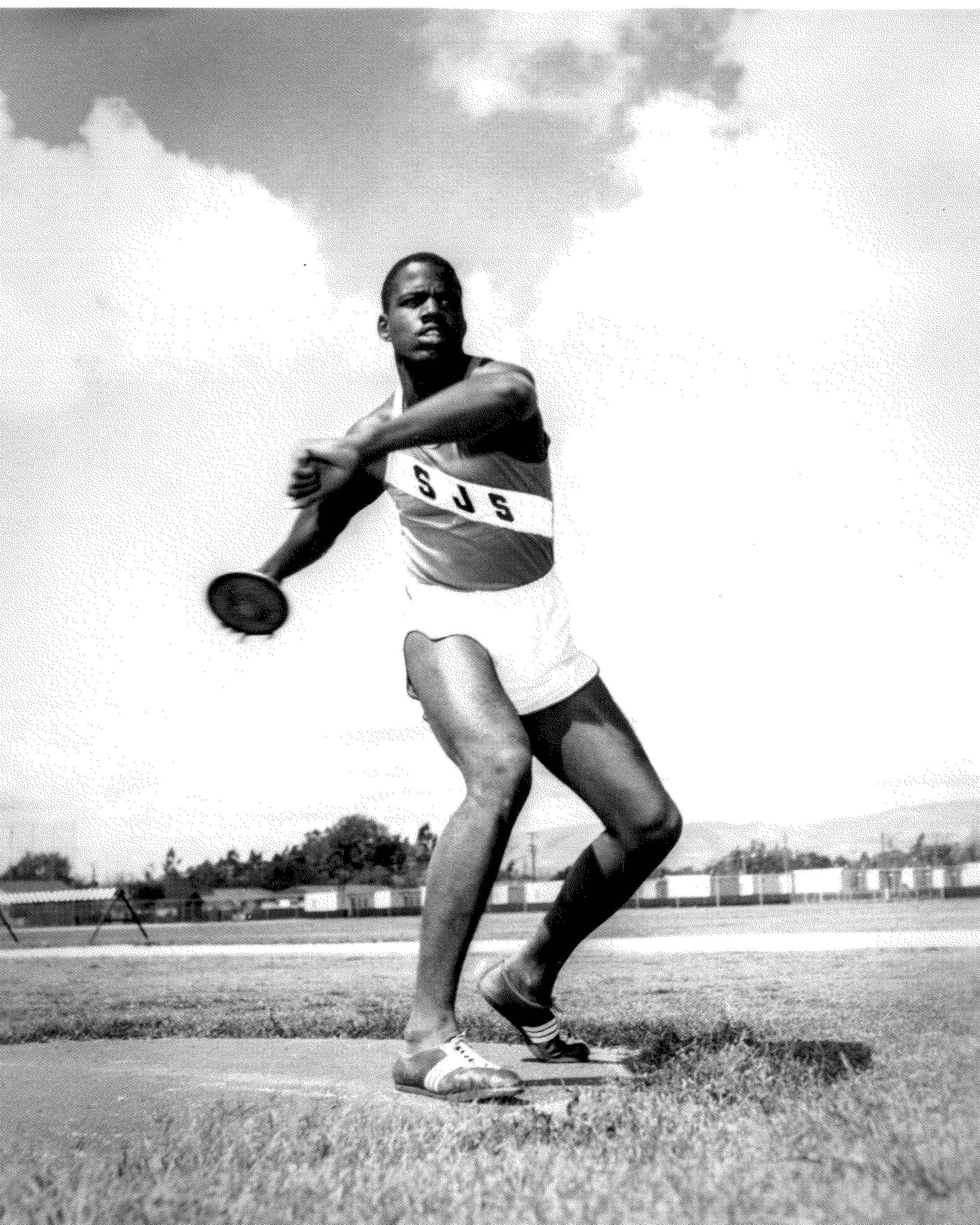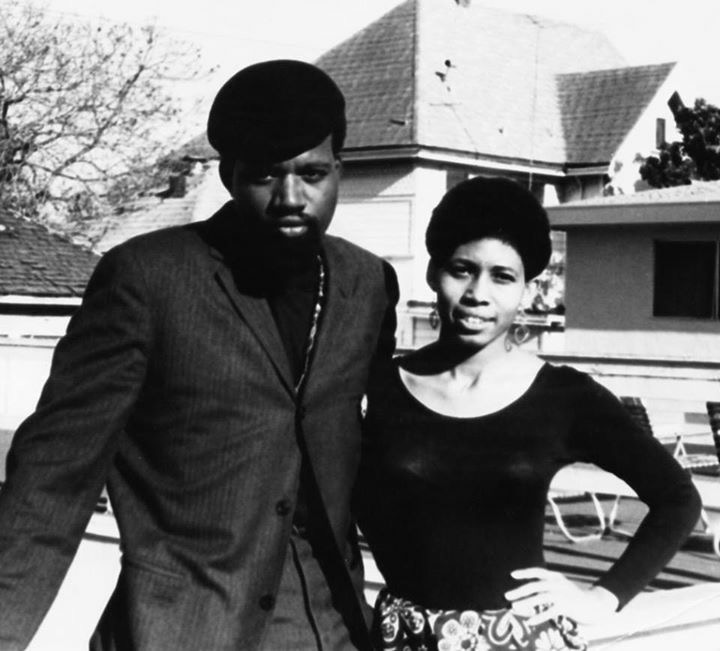Media contact:
Pat Lopes Harris, SJSU Media Relations, 408-924-1748, pat.harris@sjsu.edu
SAN JOSE, CA – San Jose State University announced today that human and civil rights icon Harry Edwards, ’64 Sociology, will serve as its 2016 Commencement speaker. In addition, Edwards will receive an honorary Doctorate of Humane Letters at Commencement. The ceremony is scheduled to begin at 9:30 a.m. May 28 at Spartan Stadium. The event will be streamed live on the university’s website.
“Harry Edwards came to San Jose State to pursue an education while representing the university in intercollegiate athletics, and he accomplished both with extraordinary distinction,” said SJSU Interim President Susan Martin. “Dr. Edwards went on to dedicate his life to developing innovative approaches for raising the nation’s consciousness about the hidden inequities and barriers that exist in our society through his work in athletics. We are proud to recognize his contributions with an honorary degree and look forward to hearing him address our graduates.”
This academic year, an estimated 9,000 San Jose State students will earn bachelor’s, master’s and doctoral degrees. Approximately 15,000 family members and friends are expected to attend Commencement.
Harry Edwards
Harry Edwards, 73, was born in St. Louis, Mo., and raised in East St. Louis, Ill., the second of eight children. With no more than a third-grade education, his father supported the family and encouraged Harry to take advantage of the opportunities the sports world provided.
Edwards followed through, excelling in sports and academics in high school. With financial support from a St. Louis-area attorney, he arrived in California to attend Fresno City College on a track and basketball scholarship. He later transferred to San Jose State University, where he served as captain of the basketball team and set school records for the discus.
After graduating in 1964 with a degree in sociology, Edwards had three choices: professional football, professional basketball, or graduate school. He chose graduate school, and began work on master’s and doctoral degrees at Cornell University in New York. After completing his master’s degree, he took a break from his studies to return to San Jose State, where he worked as a part-time instructor of sociology.
The year was 1966, and the civil rights movement was in full swing. Drawing on his childhood experiences, his years as a college athlete, his academic training, and his desire to educate, Edwards began gaining national attention for speaking out on the inequities he perceived in the nation and the sports world.
“During the 1967 college football season, Edwards, then a part-time instructor… presented a list of civil rights grievances to the administration on behalf of the school’s black students, particularly its athletes. Edwards’s group threatened to ‘physically interfere’ with the opening game if demands were not met. It was a regional watershed in radical sports activism, and the mainstream reaction was also a first; the opening game was canceled,” according to The New York Times.
Taking a Stand
The following year brought the assassinations of Dr. Martin Luther King, Jr., and U.S. Senator Robert Kennedy. Edwards lent his voice and support to the Olympic Project for Human Rights, a movement calling upon black athletes to boycott the 1968 Olympics in Mexico City. Watching television in the United States, Edwards observed SJSU track stars and U.S. Olympians Tommie Smith and John Carlos take a stand for human rights on the awards podium.
At the time, all three men were heavily criticized for their actions. Three decades later, San Jose State student leaders recognized the courage of these Spartans by memorializing the moment with a 24-foot tall sculpture in the heart of our campus.
Edwards went on to earn a doctoral degree from Cornell University in 1971, and to begin a distinguished, three-decade career as a professor of sociology at the University of California, Berkeley. A giant of a man with a caring presence, his “Sociology of Sports” course was among the most popular on campus.
During that time, he remained in constant contact with the professional sports world, where he served as a consultant to two luminaries who also graduated from San Jose State: Major League Baseball commissioner Peter Ueberroth, ’59 Business, and the late San Francisco 49ers Head Coach Bill Walsh, ’55 BA, ’58 MA Education.
Providing Opportunity
In addition, Edwards worked with the Golden State Warriors and the University of Florida. In all of these roles, he sought to develop practices and programs to increase minority representation in the coaching ranks and to support players of color as they navigated the opportunities and pressures of college and professional sports. Edwards delivered a moving eulogy for Walsh, summarizing the ways they sought to provide opportunities to all NFL players.
Harry Edwards is the author of four books: “The Struggle That Must Be,” “Sociology of Sports,” “Black Students,” and “The Revolt of the Black Athlete.” He has been married for 47 years to Sandra Boze Edwards, ’70 BA Liberal Studies, ’88 MA Education. The couple resides in Fremont, Calif., and they are the parents of three now adult children: a lawyer, a physician, and an information technology/computer programming specialist.
About San José State University
The founding campus of the 23-campus California State University system, San José State provides a comprehensive university education, granting bachelor’s, master’s and doctoral degrees in 145 areas of study with an additional 108 concentrations – offered through its eight colleges.
With more than 32,000 students and nearly 4,370 employees, San José State University continues to be an essential partner in the economic, cultural and social development of Silicon Valley and the state, annually contributing more than 7,000 graduates to the workforce.
The university is immensely proud of the accomplishments of its more than 220,000 alumni, 60 percent of whom live and work in the Bay Area.



